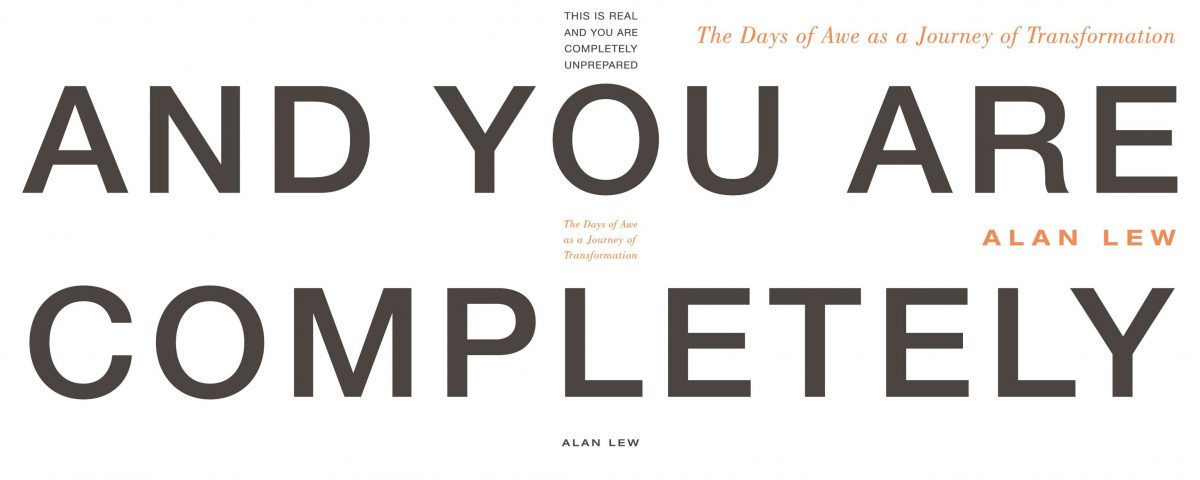Review: Teshuva Insights in Unexpected Places

Review: Teshuva Insights in Unexpected Places
This is Real and You Are Completely Unprepared by Alan Lew
Reviewed by Rabbi Avi Finegold
Ten years ago, Rabbi Alan Lew died suddenly at 65. He once thought he would become a Zen
Buddhist priest. He chose a different path — one that led him to rabbinical school and ultimately
to the forefront of the Conservative Jewish community.
His book on spiritual development, This is Real and You Are Completely Unprepared (Little,
Brown) charts a path between two key moments, Tisha B’av and Sukkot, as bookends of the
entire period of the Yamim Noraim and the process of teshuva – repentance. This framing
assumes that we cannot change, until we deeply feel the loss of our home, our center, whether
that is the Temple or our personal moral centers from which we have strayed. This loss is the
beginning point of teshuva and transformation. We experience the end of this process when we
face the same situation with which we began, living in the shell of a home, but instead of
brokenness we experience joy, as we reflect on the Sukka that surrounds us.
The book reframes the concept of teshuva using sources that are not Jewish. It explains
teshuva as a universal concept. Lew insists that teshuva is not just rooted in halakha; all of
humanity must partake in it, and everyone has stories that they can draw upon to inspire them
toward it.
Two things separate this book from classic works on repentance. One is the vividness and
clarity of the writing. Other such works often feel cerebral and rational, as if the authors are
simply pointing out a formula for teshuva: “This is the nature of teshuva and this is what must be
done to achieve it.” Instead, Rabbi Lew creates a compelling work that weaves many divergent
threads together, among them: Chassidic Rebbes, Buddhist Monks, baseball players, and the
author himself, a man grasping for his way in the world. The writing is clear and profound. It
draws the reader into a world that is both universal and intensely personal. The book quotes
Rabbi Soloveitchik, Heschel, as well as stories from the author’s own rabbinic life. It brings
classic ideas of teshuva, as well as anecdotes and parables.
The second difference is in his message about unpreparedness. No matter how much we
prepare, we can never be ready to face these days. We will always be inadequate to the task.
This is not only acceptable; it is an essential feature of grappling with our failings and ourselves.
Once we accept this awareness, we can internalize that teshuva does not change the action
that we did. It changes us. Our approach to our misdeeds is altered, only as we ourselves
change. The author notes that in U’netaneh Tokef we say “maavirin et ro’a hagezera” – “avert
the evil decree,” and not ma’akirin – “uproot” as originally formulated. We alter the outcome, but
we cannot ever really destroy the action. Essentially, we are constantly in a state of becoming,
rather than ending our journey. This is the “Completely Unprepared-ness.” It allows us to not fall
apart upon realizing the repetitive nature of the process. This is not just real; it is raw teshuva
worthy of study, over and over.
[Published on October 3, 2019]
